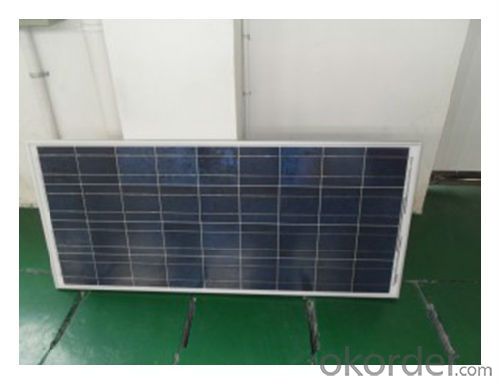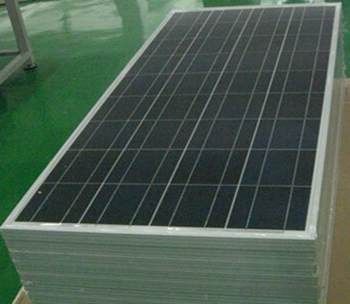Loading Port:China Main Port
Payment Terms:TT or LC
Min Order Qty:-
Supply Capability:-
PV systems use the most abundant energy source on the planet, solar radiation, to generate electricity. They are silent, consume no fuel and generate no pollution. They also contribute to the reduction of greenhouse gas emissions; a 2kW PV system on a house will prevent the emission of about 40 tonnes of CO2 during its projected 30 year lifetime. Furthermore, the use of PV will reduce your electricity bills and exposure to fluctuating and steadily rising electricity prices.
Customers benefit from our progressive system innovations. Around the world, we meet our customers' desire for the greatest possible reliability, long-term performance and aesthetic integration. No matter which kind of roof – we always have the right solution.

Max-power (W) | 140 |
Max-Power Voltage (V) | 18.3 |
Max-Power Current (A) | 7.65 |
Open-Circuit Voltage (V) | 21.95 |
Short-Circuit Current (A) | 8.25 |
Mechanical Characteristics
Cable type, Diameter and Length | 4mm2, TUV certified, 1000mm |
Type of Connector | Compatible with MC4 plug |
Arrangement of cells | 4*9 |
Cell Size | 156*156 |
Dimension | 1482*676*40 |
Weight | 12Kg |
Glass, Type and Thickness | High Transmission, Low Iron, Tempered Glass 3.2mm |
Features
Guaranteed positive tolerance 0/+5w ensures power output reliability
Strong aluminum frames module can bear snow loads up to 5400Pa and wind loads up to 2400Pa.
Excellent performance under low light environments (mornings evenings and cloudy days)
12 years for product defects in materials and workmanship and 25 years for 80% of warranted minimum power.
Certifications and standards: IEC 61215.
Manufactured according to International Quality and Environment Management System (ISO9001, ISO14100).

FAQ
Q: Do you have any MOQ limit?
Our MOQ is 200 pieces.
Q: How long is the warranty period for the solar modules?
15 years 90% of its nominal power rating.
25 years 80% of its nominal power rating
Q: What kind of loads can I run on PV?
With a correctly designed PV system you can power almost any electrical load. However, as the load size increases the expense also increases. Loads like hot water heaters, air conditioners, room heaters and electric stoves should be avoided. The added cost of trying to power loads like these is very cost prohibitive. If these loads have to be powered it will be a lot less expensive to change the appliance to use an alternative fuel type like propane.
Q: When do I need a charge controller and why?
The safest way to figure out if you need a charge controller is to take Battery Amp Hour Capacity and divide this by the Solar Panel max. power amp rating. If the quotient is above 200, you don't need a controller. If the number is less than 200 than you need a controller.